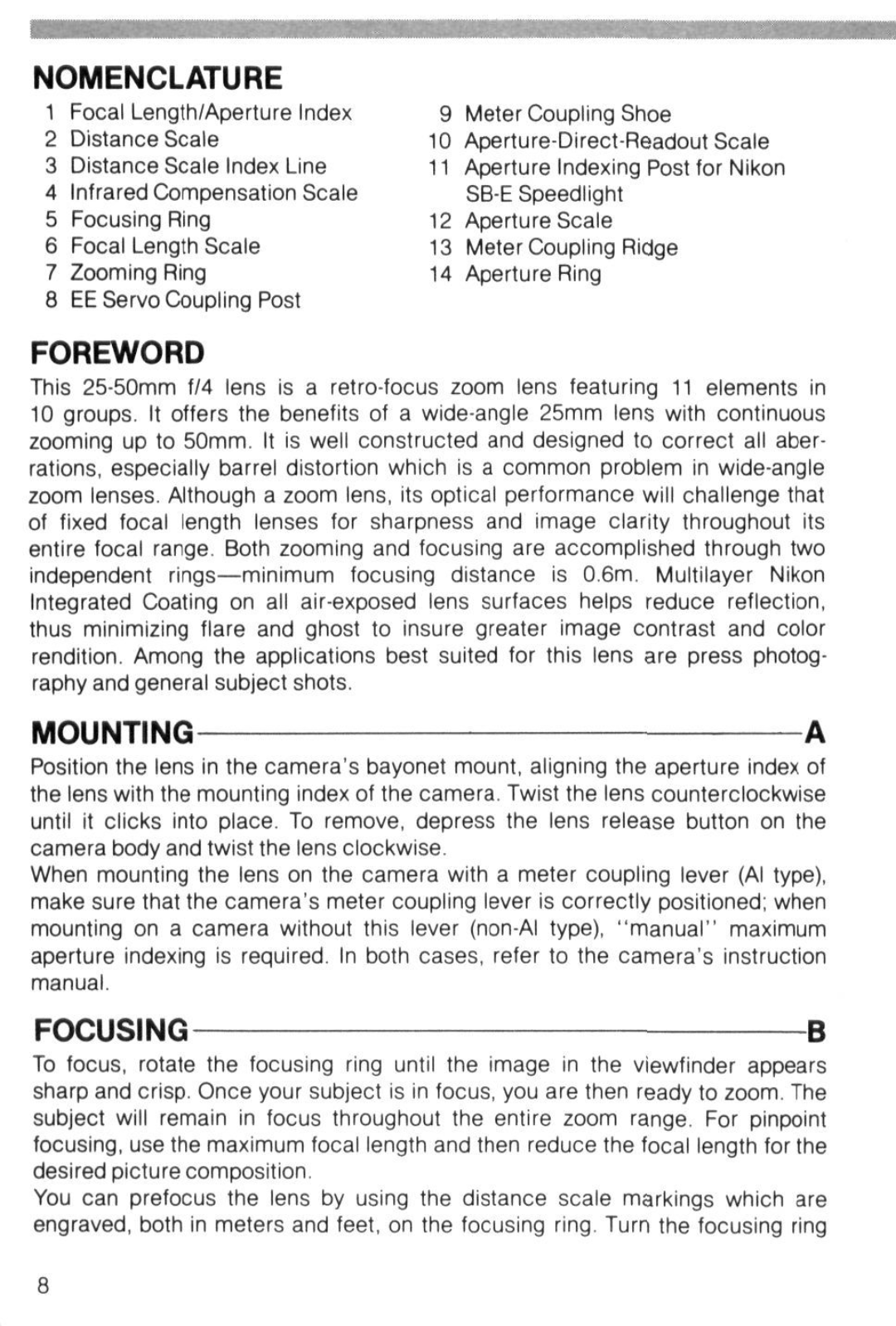Zoom-Nikkor 25-50mm f/4 specifications
The Nikon Zoom-Nikkor 25-50mm f/4 is a versatile and compact zoom lens that has become a favorite among both professional photographers and enthusiasts. It was released in the 1970s as part of Nikon's F series lenses, designed primarily for 35mm film cameras but remaining popular in the digital age with compatible DSLR and mirrorless systems.One of the standout features of the Nikon Zoom-Nikkor 25-50mm f/4 is its constant maximum aperture of f/4 throughout the zoom range. This capability ensures consistent exposure settings and depth of field control, making it an excellent choice for varied shooting conditions. The lens covers a wide focal length range, from a moderately wide 25mm to a standard 50mm, enabling photographers to capture a variety of scenes—from expansive landscapes to intimate portraits.
The lens incorporates several advanced optical technologies designed to enhance image quality. The construction includes multiple elements arranged in groups, effectively minimizing distortion and aberrations typically associated with zoom lenses. Nikon's proprietary Super Integrated Coating (SIC) further reduces flare and ghosting, resulting in impressive color accuracy and contrast.
Another significant characteristic of the Zoom-Nikkor 25-50mm f/4 is its compact and lightweight design. Weighing merely 600 grams, it offers portability without sacrificing durability. The lens barrel is made from high-quality materials, ensuring reliability in various shooting environments. The design also features a smooth zoom mechanism that allows for precise framing adjustments.
Focusing is made easy with the lens's close focusing capability, allowing for effective close-up work. The focus ring operates smoothly, allowing photographers to fine-tune their shots accurately. Additionally, the lens is compatible with Nikon's extensive range of accessories, including filters and hoods, enhancing its versatility.
In conclusion, the Nikon Zoom-Nikkor 25-50mm f/4 remains a trusted companion for photographers seeking a reliable zoom lens that combines excellent optical performance with practicality. With its constant aperture, superior coating technologies, and robust design, it is a perfect choice for anyone wanting to explore the art of photography, making it an enduring classic in the world of photography lenses.

